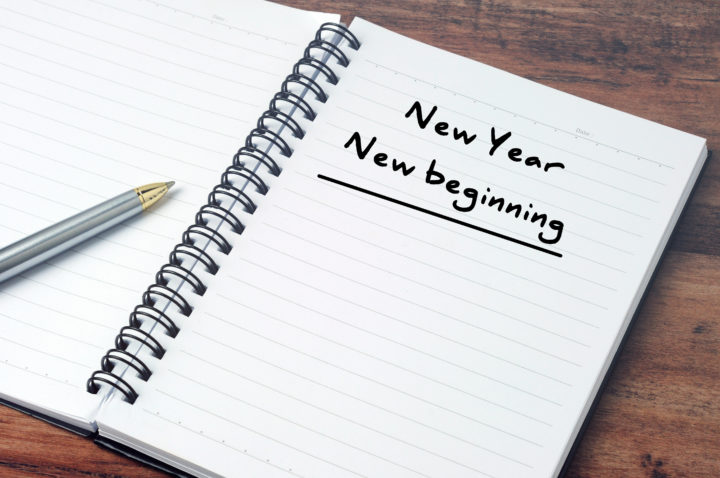In sports, some coaches are known for their ability to build a team and to prepare their players for their games, and this longer term and slower paced aspect of coaching is an extremely important part of their jobs. They can use their competencies of studying opponents, planning practices, and teaching fundamental skills to their advantage.
But it’s not always enough: when despite all that preparation and planning the game gets close, they may be forced to react and adapt on the fly. The coaches who can do this well are known as “game day” coaches, and it’s a high compliment to be considered one.
My work is similar to that of a sports coach. I build my “team” by working on new material, which includes writing books and producing blog posts. I craft and execute my game plans by teaching classes using prepared materials. But I also do “game day” coaching: when I conduct one on one communications coaching sessions with executive clients.
What I love about doing these individual coaching sessions is that anything goes, like the difference between performing a comedy routine and doing improv. We may work on a long-term plan to improve communication skills, or we may address an upcoming critical presentation. Either way, we work with real material in real-life situations, where millions of dollars and perhaps individual careers may be at stake. On the fly, I have to evaluate the situation, ask the right questions, answer difficult questions, suggest changes, explore different approaches, etc. It’s extremely challenging, but it’s also exhilarating at the same time, for two reasons. Most important, I’ve helped a client, but second, I often feel like I have learned as much as my client has. Especially when they report back to me later that they won the game
If insanity is doing the same thing over and over and expecting different results, then making New Year’s resolutions seems to be pretty crazy. And when you consider the irrationality of letting a random date on the calendar have so much influence on your behavior, it gets even more insane.
Yet most of us still do it. We enter every year determined to make a fresh start, whether it’s finally breaking a bad habit, firmly establishing a healthy and productive one, or tackling a long-dreamt project. In my own case, I love to view January 1 as a blank page on which I feel I can write any story I wish, and I have the confidence that this time it will be different.
Because I’m self-employed, I’m in control of my daily schedule while I am not traveling to work with clients, so most of my resolutions center around productive work habits, such as scheduling blocks of time for writing or prospecting, or reducing distractions such as social media.
I can’t speak for others, but I’m probably typical: I have never had a year where I stuck faithfully to every resolution I made. On some rare occasions I actually see a lasting change in my habits, but mostly I stick with a few for more than a month or two, and the great majority are only embarrassing memories after just a few short days.
And I fully expect the same thing will happen with the resolutions I’ve made this year—but I still have made some ambitious resolutions and plans and next year I will do it again.
Why?
Because while hope is not a strategy, it is still a precious asset to have. Trying is better than not trying. I don’t want to be one of those sad people who have given up hope of getting better, or who have let the pressures of everyday living overwhelm their vision of what is personally possible. I know a bunch of these folks, and I refuse to be like them.
I also do it because it does work. According to one study, people who make resolutions are almost twelve times as likely to be successful after six months than non-resolvers. And I’ve seen it in my own life. Just last year I resolved to start a podcast, and I produced 44 episodes during 2018. The three books I’ve written have all been conceived as part of a resolution for the relevant year. (And I resolve to write one more this year.)
I do it because it’s always healthy to take stock of who you are, where you are, and compare it to who and where you want to be. Because you can’t embrace the chase without having something distant and worthwhile to pursue. Because each small win and each additional day sticking to the resolution can be so personally satisfying.
So, call me crazy if you will, but I am making fresh resolutions again this year—and this time I expect different results!
Podcast: Play in new window | Download
“If we are all in agreement on the decision – then I propose we postpone further discussion of this matter until our next meeting to give ourselves time to develop disagreement and perhaps gain some understanding of what the decision is all about.” Alfred P. Sloan
In recent podcasts, I’ve stressed the value of going along with your conversational partner in order to achieve an agreeable, smooth flow. But in this podcast, I am going to take the opposite side of that argument—to disagree with myself, essentially.
That’s because disagreements are not only inevitable but can be extremely valuable to produce best thinking and results. Unfortunately, most people are uncomfortable with it. As Margaret Heffernan says, 85% of executives admitted that they had issues at work that they were afraid to raise.
So, there are clearly advantages to daring to disagree—but you can also be smart about it. In this podcasts I explain the risks of being too agreeable, the benefits of challenging others’ thinking, and some approaches to use to ensure that you can be constructive in your disagreement while preserving relationships as well.
Risks of the “accepting” approach
- Taking a bad idea too far
- Leaving important things unsaid
- Focusing too much on “being nice” can distract from thinking about the issue
- Lack of clarity
Benefits of constructive disagreement
- More clarity and less risk of misunderstanding
- Speaking up may encourage others to do the same
- Great way to pressure-test your ideas and conviction
- Encourage diversity of thought
How to engage in constructive disagreement
- Don’t make it personal
- Keep the big picture in mind
- Have an open mind and be open to persuasion
- Use your imagination to find a third way that satisfies both parties
In the end, honest disagreement can be one of the highest signs of respect that you can offer to someone, because it treats them as an intelligent person who is willing to listen to reason and cares for a greater good than pure self-interest.
If you disagree with anything Isay in this podcast, please pay me the respect of letting me know.
See also: When Is It Your Duty to Disagree?
Charlie Plumb was a US Navy pilot who was shot down over Vietnam and spent six years in the infamous Hanoi Hilton. One time, long after he was back in the States, a man came up to his table at a restaurant and said “You’re Charlie Plumb, you flew jet fighters off the Kitty Hawk, and you were shot down!”
Plumb asked him how he knew so much, and the man said: “I packed your parachute.”
Plumb later reflected in his motivational speeches that he never knew the man existed. He probably passed by him hundreds of times while on the ship and never even said hello, but if the man had not done his job, Plumb would not be alive today to tell the story.
At least Plumb got the chance to personally thank the man for his part in his life. We all have people packing our parachutes—sometimes we’ve needed them and we’ve been grateful; maybe we haven’t needed them yet but they are sitting there ready, just in case. And all because someone has done their job.
All of us who have had any modicum of success in life like to pat ourselves on the back and congratulate ourselves on what we’ve accomplished with our talent, grit and vision, and there’s nothing wrong with that. But fortunately we have Thanksgiving which comes around once a year to remind us that none of us is in this alone; none of us would enjoy success without the contributions of countless people in our lives. That is what Thanksgiving is all about.
Who is packing your parachutes? Have you thanked them lately? Have you let them know that you recognize the contribution they have made or are making toward your success?
On Thanksgiving, I want to personally thank everyone who has helped pack my parachutes. If you are receiving this email, it’s because you have contributed to my success in some way: you’ve hired me to work for your company, you’ve attended one of my workshops, you’ve read and supported my blog, and so on. If you are reading this email: THANK YOU. And Happy Thanksgiving. Please take a moment to thank someone today.






